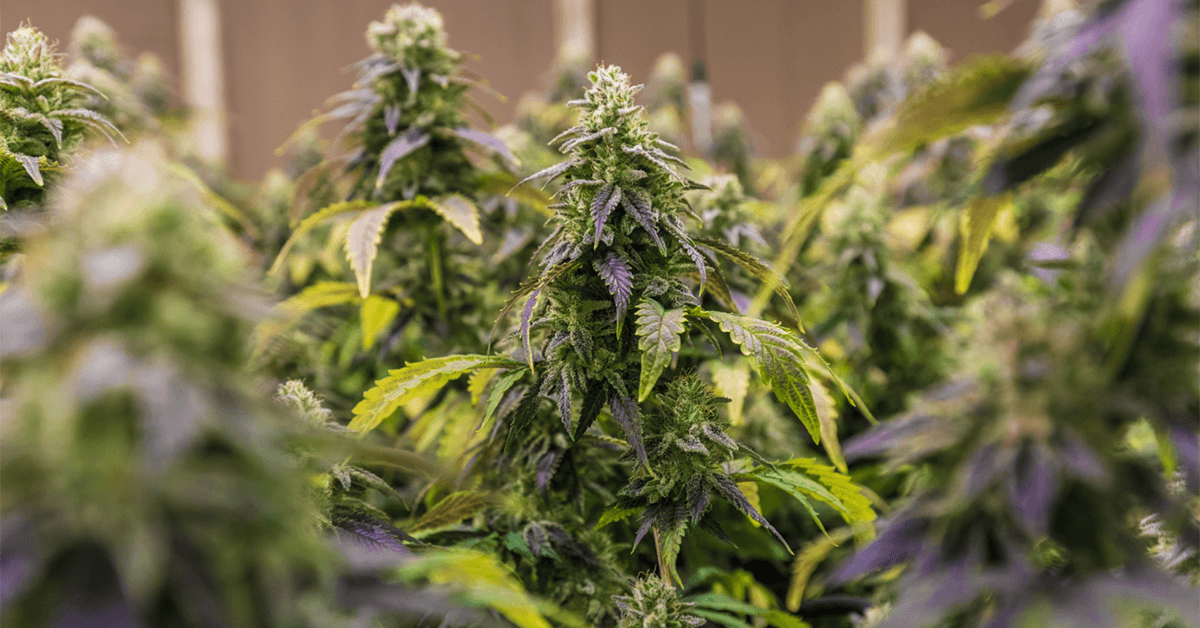Cannabis Retailer Supports Madison Heights in Major Citywide Rebranding Initiative

Madison Heights is experiencing financial benefits from the presence of cannabis companies, leading to significant community enhancements, including a $200,000 project to update the city's gateway signage. This initiative, funded by Quality Roots, a leading cannabis retailer set to open its doors in Madison Heights, aligns with the city's broader efforts to rebrand and rejuvenate its image.
City Manager Melissa Marsh announced that the production of the new signs, incorporating the city's updated logo, is underway, with installation expected to begin between May and June. This development is part of a collaborative effort with Quality Roots, which has shown support for the city's goals since the inception of its application process. Mayor Roslyn Grafstein highlighted the costly nature of the rebranding effort and appreciated Quality Roots' willingness to cover the expenses.
The introduction of new gateway signs, starting at the intersection of 14 Mile and John R roads, is just one aspect of the positive impact cannabis businesses have had on Madison Heights. In 2021, two other cannabis stores, Liberty and Puff, commenced operations in the city, contributing significantly to local funding through state allocations and donations to city-led nonprofit initiatives. These contributions support a variety of community projects and events, enhancing public safety, recreational activities, and food security among residents.
Moreover, the presence of cannabis businesses has led to a substantial increase in tax revenue, enabling the city to reduce its millage rate last year. By occupying previously vacant or underused properties, these companies have not only boosted the properties' taxable value but also spurred economic development, job creation, and local spending, benefiting both cannabis-related and unrelated businesses.
Mayor Grafstein emphasized the strategic decision to welcome legal cannabis operations as a means to revitalize the city, addressing vacant and blighted properties, enhancing tax revenue, and creating employment opportunities. The success of this approach is evident in the growing employment rates and increased patronage of local businesses, contributing to the overall economic health of Madison Heights.
Quality Roots CEO Aric Klar shared that the Madison Heights location marks the company's third establishment in Oakland County and its eighth statewide, indicating a broader commitment to contributing positively to the communities it serves.
Al Harrington's Viola Faces Setback in Detroit Amid Insurance Dispute

In a significant development illustrating the challenges within the cannabis industry, Al Harrington, a former NBA star and the CEO of Viola, has declared an indefinite halt to operations at the brand's only dispensary in Detroit. This pause in operations comes roughly four years after the medical cannabis retail outlet first opened at 4473 W. Jefferson Ave., a strategic location chosen by Harrington for his national cannabis initiative.
The catalysts for this decision are multifaceted, reflecting the broader struggles faced by the cannabis sector. Harrington highlighted that dwindling profit margins—caused by a sharp decline in cannabis product prices—and reduced medical cannabis sales have significantly impacted the business's operational sustainability.
This challenge is intensified for businesses like Viola that are yet to secure licenses for recreational cannabis sales, which amplifies their operational difficulties.
A critical issue for Viola has been its ongoing dispute with Obsidian Specialty Insurance Co., its insurance provider. Harrington revealed that Viola's insurance claims, including those for damages caused by an ice storm in February which resulted in extensive loss of cannabis plants, have been consistently denied.
Harrington expressed his frustration with the insurance provider, stating, "When the people that are supposed to be there to support us — that we actually pay to do a job for us and to provide a service — they don't do it, it's tough."
The denial of insurance claims by Obsidian Specialty Insurance Co. follows a series of mishaps for Viola, including damage from a snowstorm leak and a theft in October, leading to three insurance claims totaling $8.9 million being refused.
In the interview, Harrington discussed the various challenges Viola has faced, not just in Michigan but across other states as well, including electrical outages and infestations. These operational difficulties have prompted Viola to consider a strategic shift towards an "asset-light model." This approach involves collaborating with other growers to cultivate Viola's strains according to its specifications, aiming to lessen the operational load on the company.
The closure of the Detroit dispensary signifies a notable obstacle for Viola's aspirations in Michigan. Despite efforts to obtain recreational cannabis licenses, the company has faced rejection, narrowly missing out due to tight margins and encountering technical problems with their application submissions.
This failure to shift towards recreational sales has hindered growth and revenue, rendering the dispensary unable to reach its full potential.
Despite these setbacks, Harrington remains hopeful about Viola's prospects in Detroit and the wider cannabis market. He is keen on pursuing new ventures under the asset-light model, potentially collaborating with other cultivators to maintain Viola's presence in Michigan. Harrington's dedication to Detroit and to cannabis advocacy is steadfast, with aspirations of resolving the insurance conflict to continue investing in Viola's success within the cannabis sector.
Al Harrington's experience with Viola, from its inception to its current challenges, underscores the complexities and fluctuations of the cannabis industry, providing a compelling case study in the ongoing evolution of cannabis business regulations and culture.
Grand Traverse County to Enhance Public Spaces and Safety with Cannabis Tax Dollars

Grand Traverse County in northern Michigan is experiencing a financial boost, thanks to the cannabis industry. The Michigan Treasury Department reports that the county has received over $886,000 from cannabis-related taxes, with allocations also made to Fife Lake and Green Lake Townships within the county.
Local government officials are currently in discussions about the most effective ways to utilize this newfound revenue, sharing various proposals and ideas. In particular, Green Lake Township has earmarked the $118,000 it has received for community projects, guided by the results of a recent community needs assessment.
The township intends to allocate these funds towards enhancing local parks and bolstering public safety measures, including the procurement of new equipment for community police officers. This decision stems from the revenue generated by the township's two recreational cannabis outlets.
Steve Ezell, the proprietor of Interlochen Alternative Health, one of the recreational cannabis stores in the area, recalls the initial challenges faced in convincing the community of the significant financial benefits that the cannabis industry could bring. Thanks to the successful operation of such enterprises, the township now enjoys substantial economic contributions that are being reinvested in local development and safety initiatives.
Michigan Cannabis Sales Surge in February with Impressive Growth

In February, Michigan's cannabis industry experienced a notable uptick, with total sales reaching $261.1 million, marking an almost 10% increase from January's $242.8 million. This growth encompasses both adult-use and medical cannabis markets, with adult-use sales dominating at $257.9 million, compared to the significantly smaller $2.2 million in medical sales.
The price per ounce for medical cannabis stood at $102.16, whereas adult-use cannabis was slightly cheaper at $91.94, as reported by the Cannabis Regulatory Agency (CRA). The adult-use market saw sales of 474.9 pounds of cannabis.
Employment within the sector is also on the rise, with 35,335 individuals now working across both medical and adult-use cannabis companies, indicating a robust job market within this burgeoning industry.
A breakdown of sales by product category highlights the diverse consumer preferences in Michigan's cannabis market:
- Flower led the sales with $118.4 million.
- Vape cartridges followed at $49.7 million.
- Inhalable compound concentrates garnered $28.9 million.
- Infused edibles, which include a variety of consumable cannabis products, reached $24.2 million.
- Shake and trim rounded out the top sellers with $20.8 million.
The detailed sales data for February 1 – February 29 further specifies the quantities sold and total sales for each category:
- Flower: 80,463.73 pounds, totaling $118,364,463.66.
- Shake/Trim: 21,570.44 pounds, totaling $20,810,819.73.
- Concentrate: 3,089.37 pounds, totaling $15,428,855.68.
- Inhalable Compound Concentrate: 7,902.16 pounds, totaling $28,858,791.87.
- Vape Cartridge: 9,494.76 pounds, totaling $49,717,379.36.
- Kief: 15.68 pounds, totaling $51,630.26.
- Infused-Edible: 350,520.37 units, totaling $24,180,154.12.
- Infused Non-Edible Solid: 1,218.96 units, totaling $507,475.79.
- Infused Liquid: 698,587.08 fluid ounces, totaling $821,346.29.
- Infused Non-Edible Liquid: 15,242.56 fluid ounces, totaling $116,728.44.
The total of 474,275.47 pounds and 713,836.74 fluid ounces sold translates into a comprehensive $258,857,645.20 in sales, showcasing the dynamic and expanding nature of Michigan's cannabis industry.
Fwaygo Extracts Ends Operations Following CRA License Suspension

On March 14th, 2024, a significant development unfolded in the cannabis industry in Lansing, Michigan, as TAS Asset Holdings, LLC—more widely recognized as Fwaygo—formally surrendered its medical and adult-use cannabis processor licenses. This action follows a consent order and agreement with the Cannabis Regulatory Agency (CRA), culminating in the cessation of Fwaygo's operations.
The events leading up to this point began in February 2023 when the CRA put forth formal complaints against the company, coupled with immediate summary suspensions of their licenses. An intensive review was undertaken by the CRA to examine the allegations. It was concluded that the company's continued operation posed a potential risk to public health and safety, primarily based on how they were managing their products and operations.
The core issue identified was Fwaygo's mixing of cannabis products with unregulated cannabis before distributing them into the state's legal market. The products in question were being sold under the "Fwaygo Extracts" brand, with a particular product known as "Space Rocks" drawing attention. Evidence, including surveillance footage, indicated that Fwaygo employees had been introducing unregulated cannabis into their product lines directly from personal vehicles.
As a result of these findings, Fwaygo agreed to a voluntary surrender of their processing licenses and affirmed that they would not seek renewal or reactivation in the future. Furthermore, the CRA disclosed that TAS Asset Holdings, LLC holds additional licenses under the same ownership, which will also remain permanently nonoperational:
- TAS Asset Holdings, LLC, License No. GR-A-000228
- Noble Road Company, License No. PR-000091
The CRA has taken this opportunity to remind consumers to remain vigilant regarding the products they use. Those experiencing any adverse reactions to cannabis products are urged to report these incidents to the CRA by email at [email protected] or by phone at 517-284-8599. The proactive engagement of consumers is crucial in maintaining the integrity and safety of Michigan's regulated cannabis market.
This enforcement action by the CRA serves as a stark reminder of the stringent regulations in place to protect consumers and the legal cannabis market's integrity. It also underscores the agency's commitment to enforcing these regulations to ensure that all operations adhere to the highest standards of safety and legal compliance.
Agrify Provides Cutting-Edge Extraction Solutions to Justice Cannabis's New Jersey Venture

Agrify Corporation (NASDAQ: AGFY), a prominent supplier of advanced cultivation and extraction technologies for the cannabis sector, has recently formalized an agreement with Justice Cannabis Co., a multi-state licensed operator known for its 14 dispensaries nationwide, to enter the burgeoning New Jersey market.
The agreement entails Justice Cannabis's acquisition of Agrify's comprehensive Hydrocarbon Extraction and Lab Equipment Package. This package includes the X10 Hydrocarbon Extractor, Filtration Equipment, Solvent Recovery System, a 20L Decarboxylation Package, Diamond-Miner, and Thin-Film Distillation System. Furthermore, to ensure safe and efficient operations, Justice Cannabis has also secured Agrify's UL-Compliant C1D1 Explosion Proof Room, renowned for its quick and straightforward installation process that takes less than a day and comes with a PSI technical report certification, validating its safety across all 50 states.
Originating in 2014 by civil rights attorneys in Chicago, Illinois, Justice Cannabis Co. was driven by the founders' ambition to deliver high-quality cannabis products universally. Built on the principles of adventure and exploration, Justice Cannabis has consistently showcased the significant potential of cannabis in fostering communal well-being through its varied product lines, retail experiences, partnerships, and educational initiatives. Currently, Justice Cannabis is licensed in seven states, including Illinois, Pennsylvania, Massachusetts, New Jersey, Michigan, Missouri, and Utah. In New Jersey, it operates three dispensaries under the Bloc Dispensary brand and distributes its flower products under the Crops brand. The partnership with Agrify aims to enhance Justice Cannabis's new cultivation and extraction facility, spanning approximately 72,000 square feet.
Raymond Chang, Chairman and CEO of Agrify, expressed his enthusiasm about the collaboration, stating, "It is truly an honor to have the opportunity to work with the industry-leading MSO, Justice Cannabis Co., across multiple states, and now in New Jersey. Our team has been involved with Justice Cannabis since the project's inception in 2022, and we take great pride in being their partner of choice at every step. We are eagerly anticipating the completion of the new Justice Cannabis extraction facility in New Jersey."
Echoing the sentiment of successful past collaborations, Alexzandra Fields, President of Justice Cannabis Co., remarked, "After our positive experience with Agrify on our Illinois extraction facility, choosing them for our New Jersey venture was a natural decision. We are very satisfied with the performance of their equipment and are excited to introduce extraction-based products to the New Jersey market."
For those interested in the financial side of the cannabis industry, an exclusive opportunity awaits. By signing up through our Robinhood referral link, you might secure a free portion of Agrify stock, making you a part of the groundbreaking journey of companies like Agrify in the cannabis sector. Explore this chance and potentially start your investment journey in the burgeoning cannabis market.


 Helpful Links
Helpful Links